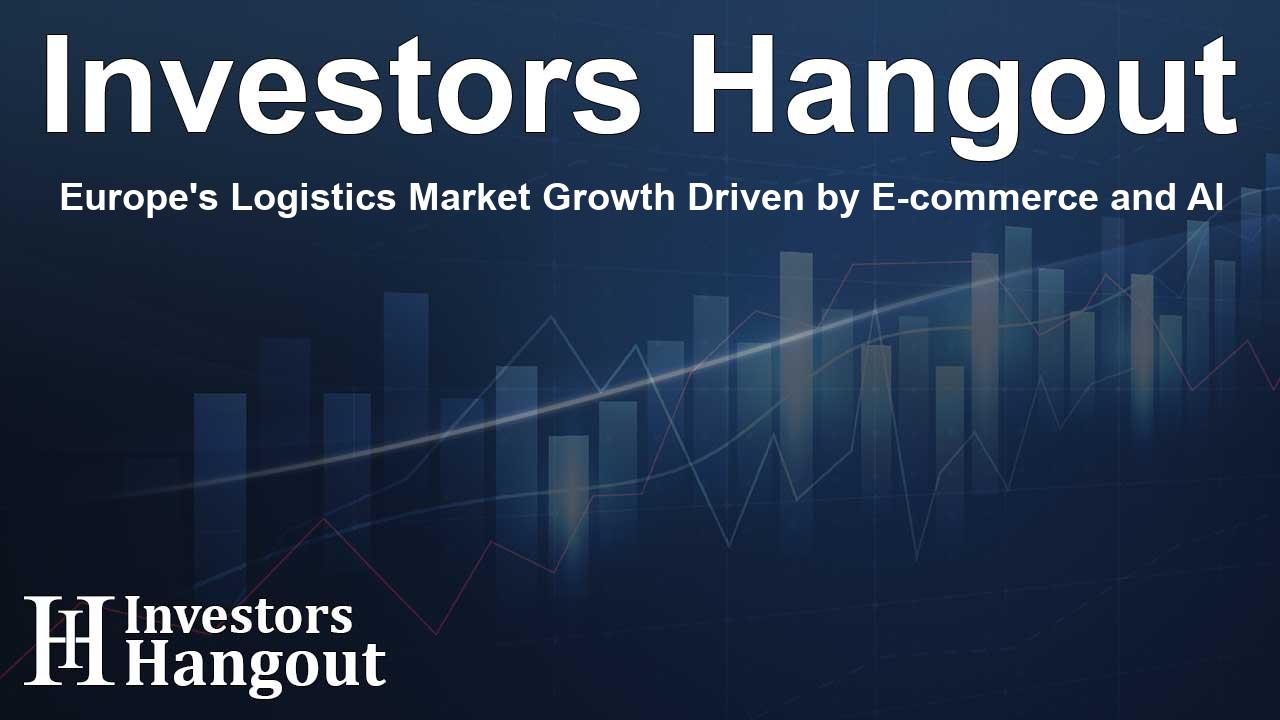Europe's Logistics Market Growth Driven by E-commerce and AI

Overview of Europe's Logistics Market Growth
The logistics market in Europe is on the brink of a remarkable transformation, projected to expand by approximately USD 43.3 billion from 2024 to 2028. This growth is being propelled predominantly by the thriving e-commerce sector and the innovative applications of artificial intelligence (AI) in the logistics landscape. Understanding the nuances of this evolution can shed light on the burgeoning opportunities within this market.
Market Dynamics Driving Growth
One of the most substantial factors contributing to this projected growth is the rapid expansion of the e-commerce industry across Europe. As online shopping continues to gain traction, consumer expectations regarding delivery speed and efficiency have also heightened. Logistics providers are rising to the occasion, enhancing their offerings to deliver customer-centric logistics solutions that focus on speed, reliability, and transparency.
The Role of AI in Transforming Logistics
Artificial intelligence plays a crucial role in redefining logistics practices, allowing companies to apply predictive analytics effectively. By incorporating historical data, demand patterns, and consumer behavior insights, logistic companies can anticipate demand fluctuations, optimize routing, and improve overall operational efficiencies. This not only ensures timely deliveries but also saves substantial costs often associated with delays and inefficiencies.
Challenges Facing the Logistics Market
Despite the robust growth forecast, the logistics market confronts several challenges. The intricate nature of supply chains, compounded by rising operations costs and competitive pricing, poses significant hurdles for logistics providers. Establishing efficient transportation routes that accommodate the rising demand for goods delivery is crucial. Furthermore, factors such as international trade dynamics and geopolitical tensions can influence logistics operations, making adaptability essential for businesses in this sector.
Technological Advancements Leading the Way
Digital transformation is paving the way for improved logistics solutions. Technologies such as the Internet of Things (IoT), blockchain, and advanced robotics are enabling companies to monitor and manage their supply chains more effectively. For instance, IoT devices allow real-time tracking of shipments, enhancing visibility and operational responsiveness. These technological advancements not only improve service levels but also contribute to sustainability goals by optimizing resource usage and reducing emissions.
Key Players in the European Logistics Market
The competitive logistics landscape in Europe includes a diverse range of key players. Companies such as AP Moller Maersk, FedEx, and DSV have been instrumental in shaping the market by adopting innovative practices and leveraging cutting-edge technology. These organizations are continually seeking ways to enhance their offerings by integrating new tools and methods to meet customer expectations effectively.
Regional Insights and Opportunities
As the logistics market evolves, specific regions are emerging as critical hubs of activity. Germany, the UK, France, and Belgium are central to logistics operations due to their strategic locations and well-developed infrastructure. This presents opportunities for logistics providers to invest in these regions to expand their capabilities and better serve their clients.
Looking Ahead: Future of Logistics in Europe
The next few years will undoubtedly see immense changes in the logistics market in Europe. With data-driven strategies becoming the norm and AI continuing to drive efficiencies, stakeholders must remain agile to respond to market shifts. Ongoing investment in infrastructure, coupled with technological advancements, will be vital to embracing the opportunities presented by the booming e-commerce landscape.
Frequently Asked Questions
What factors are driving the growth of the logistics market in Europe?
The growth is primarily driven by the e-commerce industry expansion and technological advancements such as AI, enhancing operational efficiencies.
How significant is AI in the logistics market?
AI is transforming logistics by optimizing operations, predicting demand, and improving delivery accuracy.
What are the main challenges faced by logistics providers?
Challenges include high operational costs, complex supply chains, and competitive pricing strategies.
Which countries are key players in the European logistics market?
Germany, the UK, France, and Belgium are major players due to their strategic locations and developed infrastructures.
How does technology impact the future of logistics?
Technology drives efficiency and promotes innovation, enabling logistics providers to enhance service delivery and sustainability.
About The Author
Contact Kelly Martin privately here. Or send an email with ATTN: Kelly Martin as the subject to contact@investorshangout.com.
About Investors Hangout
Investors Hangout is a leading online stock forum for financial discussion and learning, offering a wide range of free tools and resources. It draws in traders of all levels, who exchange market knowledge, investigate trading tactics, and keep an eye on industry developments in real time. Featuring financial articles, stock message boards, quotes, charts, company profiles, and live news updates. Through cooperative learning and a wealth of informational resources, it helps users from novices creating their first portfolios to experts honing their techniques. Join Investors Hangout today: https://investorshangout.com/
The content of this article is based on factual, publicly available information and does not represent legal, financial, or investment advice. Investors Hangout does not offer financial advice, and the author is not a licensed financial advisor. Consult a qualified advisor before making any financial or investment decisions based on this article. This article should not be considered advice to purchase, sell, or hold any securities or other investments. If any of the material provided here is inaccurate, please contact us for corrections.
